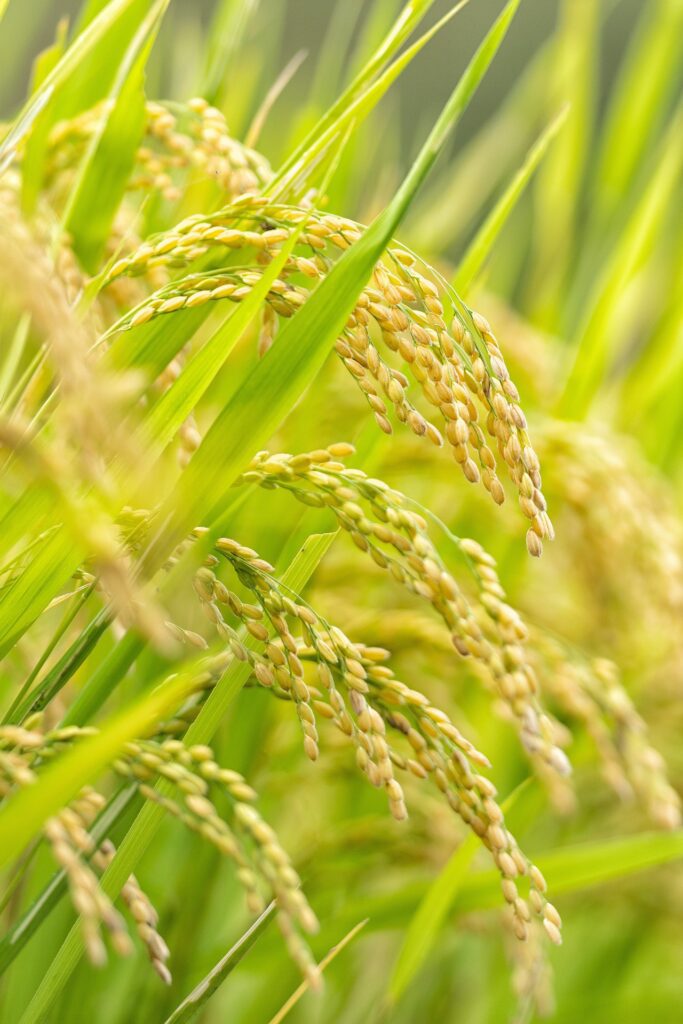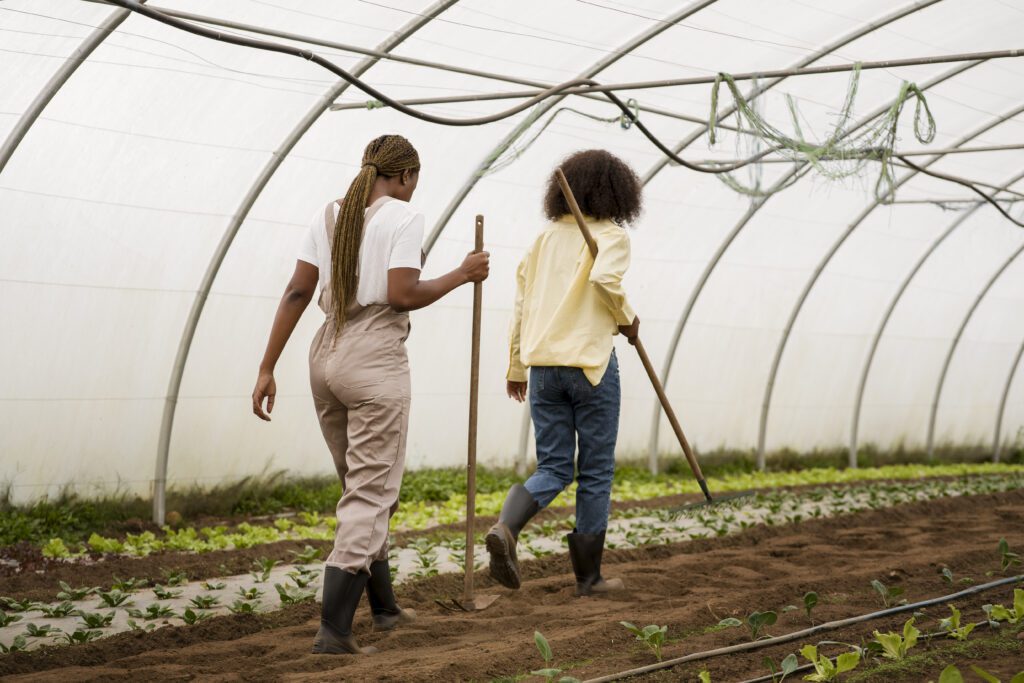Table of Contents
Introduction
Urban Farming As urban areas continue to expand and the global population rises, the challenge of food security becomes increasingly pressing. Traditional agricultural practices often struggle to meet the demands of urban populations, leading to a growing interest in urban farming. Urban farming is not just a trend; it is a transformative approach that redefines how we produce food in cities.
By cultivating crops in urban settings—whether on rooftops, in community gardens, or through vertical farms—urban farming offers a sustainable solution to food production while fostering personal and professional growth.This blog will explore the concept of urban farming in detail, highlighting its benefits, career opportunities, challenges faced by practitioners, and inspiring success stories from those who have embraced this innovative approach to agriculture.

1: Understanding Urban Farming
Definition of Urban Farming
Urban farming refers to the practice of cultivating, processing, and distributing food within or around urban areas. This includes a variety of methods such as:
- Community Gardens: Shared spaces where individuals or groups grow fruits, vegetables, and flowers for personal consumption or community use. These gardens often foster community spirit and provide educational opportunities about gardening and sustainability.
- Rooftop Gardens: Utilizing flat rooftops of buildings to grow crops helps maximize space in densely populated areas. Rooftop gardens can reduce building energy costs by providing insulation and can also help manage stormwater runoff.
- Vertical Farms: High-tech facilities that use stacked layers to grow crops indoors using hydroponics or aeroponics. Vertical farming allows for year-round production and efficient use of space.
- Hydroponics and Aquaponics: Soilless growing techniques that allow for efficient water use and space optimization. Hydroponics uses nutrient-rich water solutions to grow plants, while aquaponics integrates fish farming with plant cultivation.
Urban farming aims to enhance local food production while addressing issues related to sustainability, health, and community engagement.
Historical Context
Urban farming has deep historical roots. Ancient civilizations practiced forms of urban agriculture; for example, the Aztecs cultivated floating gardens known as chinampas on Lake Texcoco. In modern times, the concept gained renewed attention during World War II when victory gardens were promoted in the United States to supplement food supplies during wartime shortages.
The late 20th century saw a resurgence in interest as urban populations grew and concerns about food security intensified. The rise of local food movements and awareness about the environmental impact of traditional agriculture further propelled urban farming into the spotlight.
Current Trends in Urban Farming
Several trends are shaping the future of urban farming:
- Local Food Movements: There is an increasing demand for fresh, locally sourced produce among consumers who are concerned about food safety and environmental sustainability. Urban farms help meet this demand by providing fresh produce directly to consumers.
- Technological Advancements: Innovations such as hydroponics, aquaponics, and vertical farming technologies are making it easier to grow food in limited spaces with minimal resources. These technologies enhance productivity and reduce resource consumption.
- Community Engagement: Urban farms often serve as community hubs where residents can come together to learn about sustainable practices, share knowledge, and foster social connections. Community involvement is crucial for the success of urban farming initiatives.
These trends highlight how urban farming is evolving to meet the demands of modern society while emphasizing sustainability and community involvement.


2: Benefits of Urban Farming
Food Security
Urban farming plays a crucial role in enhancing food security by providing fresh produce directly to city dwellers. Many urban areas are classified as food deserts—regions with limited access to affordable fresh fruits and vegetables—urban farms can bridge this gap.
By producing food locally, these farms reduce reliance on long supply chains that can be disrupted by economic or environmental factors.Moreover, urban farming allows for greater diversity in crop production. Farmers can grow a variety of fruits and vegetables that cater to local tastes and preferences, ensuring that communities have access to nutritious options year-round.
Environmental Impact
The environmental benefits of urban farming are significant:
- Reduced Carbon Footprint: By growing food closer to consumers, urban farms minimize transportation emissions associated with long-distance shipping. This localized approach contributes to lower greenhouse gas emissions.
- Efficient Resource Use: Urban farms often utilize innovative technologies that require less water compared to traditional agriculture. For instance, hydroponic systems can use up to 90% less water than conventional soil-based methods.
- Biodiversity Enhancement: Urban farms can promote biodiversity by providing habitats for pollinators and other beneficial organisms. They also contribute to green spaces within cities, improving air quality and reducing heat island effects.
Community Engagement
Urban farming fosters community engagement by bringing people together around a common goal—growing food. Community gardens and urban farms provide opportunities for residents to connect with one another while learning about sustainable agricultural practices.
These spaces often host workshops, educational programs, and events that promote awareness about nutrition, gardening techniques, and environmental stewardship. By involving local residents in the farming process, urban farms empower communities to take control of their food sources.
Economic Opportunities
Urban farming has emerged as a significant economic driver in cities around the world, offering a wealth of opportunities for individuals, communities, and local economies. As urban populations continue to grow, the need for sustainable food sources has never been more critical. This article explores the various economic benefits of urban farming, including job creation, support for local businesses, enhanced food security, and the potential for entrepreneurship.
. Job Creation and Employment Opportunities
One of the most direct economic benefits of urban farming is job creation across multiple sectors:
- Direct Employment: Urban farms require a workforce to manage daily operations, including planting, harvesting, and maintaining crops. This creates jobs for urban farmers, gardeners, and agricultural workers. According to recent studies, urban agriculture generates employment opportunities across the food value chain—from farming and food processing to distribution and marketing.
- Skills Development: Many urban farms provide training programs that equip individuals with valuable skills in sustainable agriculture practices. These programs often target underserved communities, helping residents gain employment in a growing industry.
- Support Roles: Urban farming also stimulates demand for ancillary jobs in logistics, retail, and food service industries. As local food production increases, so does the need for transportation services to deliver produce to markets and restaurants.
. Local Economic Development
Urban farming contributes significantly to local economic development through various channels:
- Farmers Markets: Farmers markets serve as a direct link between urban farmers and consumers. These markets not only provide a platform for farmers to sell their produce but also stimulate local economies by attracting visitors who may purchase from other vendors or nearby businesses.
- Small Business Support: Urban farms often collaborate with local businesses such as restaurants and food processors. By sourcing ingredients locally, these establishments can reduce transportation costs while supporting nearby farmers. This symbiotic relationship fosters a vibrant local economy.
- Increased Property Values: Research indicates that the presence of urban farms can enhance property values in surrounding neighborhoods. The aesthetic appeal of green spaces and community gardens often makes areas more desirable to potential homebuyers.
. Entrepreneurship and Innovation
Urban farming presents numerous entrepreneurial opportunities:
- Startups and Small Businesses: The rise of urban agriculture has led to the emergence of various startups focused on innovative farming techniques, such as vertical farming or hydroponics. Entrepreneurs can capitalize on the growing demand for fresh produce by establishing small-scale operations that cater to local markets.
- Direct-to-Consumer Sales Models: Urban farmers can adopt direct-to-consumer sales strategies through community-supported agriculture (CSA) programs or subscription services. These models allow consumers to purchase fresh produce directly from farmers, ensuring a steady income stream while fostering community connections.
- Food Processing Ventures: Entrepreneurs can explore opportunities in food processing by creating value-added products such as sauces, jams, or dried goods using locally sourced ingredients. This not only enhances profitability but also reduces food waste.
. Enhancing Food Security
Urban farming plays a crucial role in improving food security within communities:
- Access to Fresh Produce: By producing food locally, urban farms increase access to fresh fruits and vegetables in areas that may lack grocery stores or healthy food options. This is particularly important in food deserts—urban areas with limited access to affordable nutritious food.
- Resilience Against Disruptions: Local food production reduces reliance on long-distance supply chains that can be vulnerable to disruptions caused by natural disasters or economic fluctuations. Urban farms provide a more reliable source of food during crises.
- Community Engagement: Urban farms often involve community members in the growing process, fostering a sense of ownership and responsibility towards local food systems. This engagement helps build resilience within communities as they work together to address food insecurity.


. Environmental Sustainability
The economic benefits of urban farming extend beyond financial gains; they also contribute to environmental sustainability:
- Resource Efficiency: Urban farms utilize innovative growing techniques that optimize resource use—such as water-efficient hydroponics or aquaponics systems—which can significantly reduce water consumption compared to traditional agriculture.
- Carbon Footprint Reduction: By producing food closer to consumers, urban farms minimize transportation-related carbon emissions associated with long-distance shipping. This localized approach contributes positively to environmental sustainability efforts.
- Waste Reduction: Many urban farms incorporate composting practices that recycle organic waste into valuable soil amendments. This not only reduces landfill waste but also enhances soil health and fertility.
3: Career Opportunities in Urban Farming
The field of urban farming offers diverse career paths for individuals interested in agriculture:
Diverse Career Paths
Urban farming is rapidly evolving as a vital sector within the agricultural landscape, offering a variety of career opportunities for individuals interested in sustainable food production, community engagement, and environmental stewardship. As cities grow and the demand for local food sources increases, urban farming presents diverse career paths that cater to different interests and skill sets. This article explores the various roles available in urban farming, the skills required, educational pathways, and the potential for personal and professional growth in this dynamic field.
. Urban Farmer
Role Overview: Urban farmers are responsible for cultivating crops and managing farming operations within city environments. They may work on community gardens, rooftop farms, or vertical farms.
- Key Responsibilities:
- Planting, maintaining, and harvesting crops.
- Managing soil health and pest control.
- Engaging with the community to promote local food initiatives.
- Skills Required:
- Knowledge of horticulture and sustainable farming practices.
- Ability to work with diverse groups of people.
- Physical stamina and willingness to work outdoors.
- Education: While some urban farmers may start with hands-on experience, obtaining a certificate or degree in urban agriculture or horticulture can enhance job prospects.
. Farm Manager
Role Overview: Farm managers oversee the daily operations of urban farms, ensuring that all aspects of production run smoothly.


- Key Responsibilities:
- Planning crop schedules and managing labor.
- Budgeting and financial management.
- Implementing best practices for sustainability and efficiency.
- Skills Required:
- Strong leadership and organizational skills.
- Financial acumen to manage budgets effectively.
- Problem-solving abilities to address operational challenges.
- Education: A degree in agricultural management, business administration, or a related field is often preferred for this role.
. Agricultural Educator
Role Overview: Agricultural educators work to promote knowledge about sustainable practices within communities or educational institutions.
- Key Responsibilities:
- Developing educational programs about urban farming techniques.
- Conducting workshops and training sessions for community members.
- Collaborating with schools to integrate agricultural education into curricula.
- Skills Required:
- Excellent communication and presentation skills.
- Passion for teaching and community engagement.
- Knowledge of sustainable agriculture practices.
- Education: A degree in education, agricultural sciences, or environmental studies is beneficial for this role.
. Research Scientist
Role Overview: Research scientists focus on studying innovative agricultural practices that can be applied within urban settings.
- Key Responsibilities:
- Conducting experiments to improve crop yields and sustainability.
- Analyzing data related to urban agriculture practices.
- Collaborating with universities or research institutions on projects.
- Skills Required:
- Strong analytical skills and attention to detail.
- Familiarity with scientific research methodologies.
- Ability to communicate findings effectively to diverse audiences.
- Education: Advanced degrees (Master’s or Ph.D.) in agronomy, plant science, or related fields are typically required for research positions.
. Marketing Specialist
Role Overview: Marketing specialists promote products produced by urban farms through various channels to reach consumers effectively.
- Key Responsibilities:
- Developing marketing strategies to increase sales of farm produce.
- Engaging with local communities through social media and events.
- Collaborating with restaurants and grocery stores to establish partnerships.
- Skills Required:
- Strong understanding of marketing principles and consumer behavior.
- Creativity in developing promotional campaigns.
- Excellent communication skills for networking with stakeholders.
- Education: A degree in marketing, communications, or business can provide a solid foundation for this role.
Additional Career Paths
Beyond the primary roles mentioned above, several other career paths exist within urban farming:
- Greenhouse Manager: Oversees the operation of greenhouse facilities where plants are grown under controlled environments. Requires knowledge of plant care and greenhouse technology.
- Agricultural Consultant: Advises farmers on best practices for improving yields and sustainability. Requires expertise in agricultural science and business management.
- Community Organizer/Outreach Coordinator: Works to engage community members in local food initiatives. Requires strong interpersonal skills and experience in community development.
Skills Required Across Urban Farming Careers
Regardless of the specific role, several core skills are valuable across all career paths in urban farming:
- Technical Skills: Familiarity with hydroponic systems, soil health management, pest control techniques, and sustainable farming practices is essential for many positions.
- Problem-Solving Abilities: The ability to troubleshoot issues related to crop health or operational efficiency is crucial in maintaining productivity on urban farms.
- Business Acumen: Understanding market dynamics helps professionals make informed decisions about pricing strategies or product offerings based on consumer demand trends.
- Communication Skills: Effective communication is vital for collaborating with team members, engaging with the community, and promoting products successfully.
- Adaptability: The ability to adapt quickly to changing conditions—whether due to weather impacts or shifts in consumer preferences—is essential for success in urban farming roles.
Education Pathways
Pursuing a career in urban farming typically involves various educational pathways:
- Certificates/Degrees in Agriculture/Horticulture: Many community colleges offer certificate programs focused on urban agriculture or horticulture that provide hands-on training alongside theoretical knowledge.
- Bachelor’s Degrees: Pursuing a bachelor’s degree in agricultural sciences, environmental studies, or related fields can open up more advanced career opportunities within urban farming sectors.
- Continuing Education & Workshops: Many organizations offer workshops on specific topics such as hydroponics, organic gardening techniques, or marketing strategies tailored to urban farmers.


Education and Training Requirements
To pursue careers in urban farming:
- Degrees: Many universities offer programs focused on agricultural sciences or environmental studies with concentrations related specifically towards sustainable agriculture.
- Certifications: Specialized certifications can enhance credentials—for example; obtaining certification from organizations like Certified Crop Adviser (CCA) demonstrates expertise within specific areas!
Investing time into gaining knowledge/experience prepares individuals well for future roles!
Skills Required for Success
To succeed in these roles requires specific skills:
- Technical Skills: Familiarity with hydroponic systems or sustainable gardening techniques is essential for many positions within urban farms.
- Problem-Solving Abilities: The ability to troubleshoot issues related crop health or system performance is crucial maintaining productivity.
- Business Acumen: Understanding market dynamics helps professionals make informed decisions about pricing strategies/product offerings based consumer demand trends.
Developing these skills enhances employability while fostering career advancement opportunities!
4: Challenges in Urban Farming
While urban farming presents numerous advantages, it also comes with challenges:
Space Limitations
One major challenge faced by urban farmers is limited space availability:
- Many cities have high land costs which makes it difficult for aspiring farmers secure plots suitable for cultivation.
- Vertical farming techniques can help mitigate this issue; however; they require significant initial investment/technical expertise!
Farmers must be creative when utilizing available resources effectively maximize yields!
Regulatory Issues
Navigating regulations related zoning laws/environmental practices adds complexity:
- Compliance with local/national laws governing agricultural practices requires ongoing diligence!
- Understanding regulations around organic certification processes may present hurdles aspiring farmers seeking enter this market segment!
Staying informed about changes within regulations allows businesses remain compliant while avoiding potential penalties associated non-compliance!
Market Competition
As interest grows around sustainable agriculture; competition among producers increases:
- Emerging players entering market may drive down prices; forcing established farms adapt quickly maintain profitability!
- Consumer preferences shifting toward organic/local products may impact demand traditional crops grown conventionally!
Farmers must stay informed about market trends/consumer preferences navigate this competitive landscape successfully!
Financial Viability
Initial investment costs associated establishing an urban farm can be substantial:
- Infrastructure costs related building out facilities equipped advanced technologies—such as hydroponic systems—can strain budgets!
- Ongoing operational expenses (utilities/labor) must be carefully managed against revenue generated from sales!
Farmers must conduct thorough financial planning before embarking on this venture!
5: Success Stories in Urban Farming
Highlighting individuals who have made significant contributions within this field serves as inspiration for aspiring professionals! For example:
Case Studies of Successful Urban Farmers
- Gotham Greens
- Founded in 2009; Gotham Greens operates commercial-scale greenhouses across several U.S. cities—including New York City/Chicago—producing fresh greens year-round!
- Green City Growers
- Based out of Boston; Green City Growers specializes designing/installing edible gardens throughout New England region—providing clients access fresh produce while promoting sustainability!
These success stories illustrate how passion combined innovation can lead transformative change within communities while contributing positively towards global food systems!
Lessons Learned from Their Journeys
Key takeaways from these journeys include:
- Embracing failure as part learning process encourages resilience!
- Fostering community engagement builds strong support networks essential navigating challenges successfully!
Conclusion
Engaging in urban farming represents a dynamic opportunity offering immense potential for personal fulfillment alongside professional success! From enhancing global food security addressing environmental concerns—this field encompasses numerous opportunities waiting exploration!By actively participating within this industry individuals cultivate thriving careers rooted deeply within sustainable practices benefiting both themselves society at large!If you’re considering embarking your journey into urban farming—now is excellent time!
Explore local resources available near you—whether workshops hosted experienced growers nearby online courses designed specifically around sustainable agricultural practices! This blog post provides an extensive overview of how engaging with urban farming contributes significantly toward both personal fulfillment as well as professional success! Each section elaborates on various aspects related directly back toward understanding why this movement matters today more than ever before!